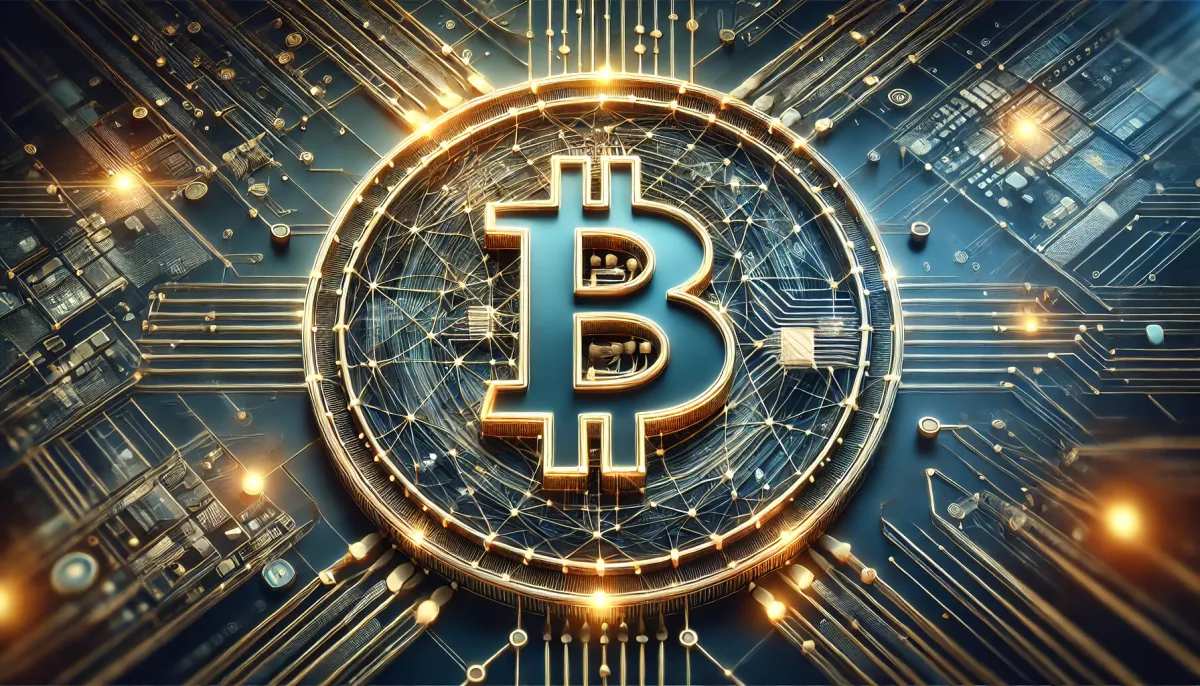Regulatory Risks and Opportunities in Bitcoin P2P Trading
The November 7, 2024 episode of the Tim Kotzman Podcast features Mark Hopkins sharing his experiences and legal challenges associated with peer-to-peer (P2P) Bitcoin trading, shedding light on the complexities of U.S. regulatory requirements for OTC Bitcoin transactions.

- My 'briefing notes' summarize the content of podcast episodes; they do not reflect my own views.
- They contain (1) a summary of podcast content, (2) potential information gaps, and (3) some speculative views on wider implications.
- Pay attention to broadcast dates (I often summarize older episodes)
- Some episodes I summarize may be sponsored: don't trust, verify, if the information you are looking for is to be used for decision-making.
Summary
The November 7, 2024 episode of the Tim Kotzman Podcast features Mark Hopkins sharing his experiences and the complex legal landscape facing Bitcoin peer-to-peer (P2P) traders. He discusses Bitcoin’s transition from a transactional currency to a reserve asset, highlights non-custodial options like Threshold DAO’s tBTC, and underscores the need for clear regulatory reform to protect Bitcoin traders and promote financial autonomy.
Take-Home Messages
- Regulatory clarity is critical for protecting Bitcoin P2P traders from inconsistent enforcement and legal risk.
- Bitcoin’s maturing role as a reserve asset reshapes its market function and shifts demand in P2P and OTC trading.
- Non-custodial finance options like tBTC offer decentralized solutions for Bitcoin holders, aligning with Bitcoin’s ethos of autonomy.
- Legislation like the Defi Regulatory Certainty Act could safeguard P2P Bitcoin transactions, reinforcing user control in digital finance.
- Institutional Bitcoin derivatives highlight growing interest, bringing both opportunity and counterparty risks into focus.
Overview
In the November 7, 2024 episode of the Tim Kotzman Podcast, Mark Hopkins explores the complexities of Bitcoin P2P trading within the U.S. regulatory landscape. Hopkins details his path from journalist to Bitcoin OTC trader, describing the hurdles he encountered, including a legal case stemming from a lack of specific FinCEN compliance registration. His experience, resulting in a prison sentence, illustrates the risks for P2P traders under current laws, which are inconsistently applied and create ambiguity for individual traders.
During his prison term, Hopkins found himself teaching Bitcoin finance classes, an ironic situation that emphasized Bitcoin’s dual role as a tool for financial independence and a target of regulatory scrutiny. He discusses how digital-first platforms like Cash App have reduced the need for OTC Bitcoin markets, offering accessible but centralized finance options that shift away from Bitcoin’s P2P roots. This change reflects Bitcoin’s broader market adoption but also reduces the role of independent traders.
The discussion expands to include non-custodial finance options, like Threshold DAO’s tBTC, which offers a decentralized way for users to access Bitcoin derivatives without intermediary control. Hopkins sees this as critical for users who prioritize financial autonomy and desire alternatives to centralized custody models. Additionally, he emphasizes the importance of the Defi Regulatory Certainty Act, which, if passed, would clarify the legal standing of P2P transactions, potentially empowering Bitcoin traders and stabilizing the market landscape.
Stakeholder Perspectives
- Bitcoin Traders: Seek clear regulatory guidance to avoid legal issues and to ensure compliance without risking penalties.
- Regulatory Agencies: Aim to uphold compliance standards but face criticism for selective enforcement, which creates market uncertainty.
- Institutional Investors: View Bitcoin as a diversifying asset, aligning with broader financial strategies but requiring robust custody solutions.
- DeFi and Non-Custodial Platforms: Demand legal clarity to expand their non-custodial offerings, aiming to cater to users who value decentralized, secure financial alternatives.
Implications
For policymakers, the need for clear and accessible compliance standards is pressing, as current ambiguity creates unnecessary risks for P2P traders. Legislation like the Defi Regulatory Certainty Act would help delineate P2P transaction legality, fostering both innovation and user protection in the Bitcoin space.
For industry stakeholders, Bitcoin’s role as a reserve asset signals a shift that could drive the development of reserve-oriented products, attracting institutional investors and stabilizing Bitcoin’s position in financial markets. Non-custodial finance options, such as Threshold DAO’s tBTC, align with Bitcoin’s core ethos of user autonomy, offering secure, self-managed alternatives that could diversify Bitcoin usage across different market segments.
Future Outlook
The U.S. regulatory environment may evolve as public awareness around Bitcoin’s legal status increases. Legislative changes like the Defi Regulatory Certainty Act would enable safer and more predictable Bitcoin P2P trading, fostering broader autonomy and reducing dependency on centralized financial systems. Such changes could catalyze growth in decentralized finance, supporting Bitcoin’s foundational goals of financial independence.
The growing institutional interest in Bitcoin derivatives suggests a transformative period ahead, potentially accelerating Bitcoin’s acceptance in mainstream finance. Non-custodial alternatives, however, remain essential for users prioritizing autonomy and direct control. As Bitcoin becomes a reserve asset, secure non-custodial solutions will likely gain traction, especially if they offer the transparency and control that centralized models lack.
Information Gaps
- What specific actions or transactions currently place P2P Bitcoin traders at risk under U.S. law? Understanding which transactions put traders at risk could clarify compliance requirements and reduce the threat of legal consequences. This research could support advocacy for clearer policies that protect traders engaging in legitimate P2P transactions.
- How secure are DeFi options like Threshold DAO’s tBTC in providing non-custodial Bitcoin derivatives? Security is a core concern for users considering DeFi options, especially when significant financial assets are at stake. Research on DeFi security would promote trust and enable informed decisions by users seeking alternatives to centralized custody.
- What specific U.S. regulations limit access to DeFi solutions for Bitcoin users? Identifying the regulatory constraints affecting DeFi in the U.S. would inform stakeholders on the precise legal barriers. This insight could guide policy reform efforts, supporting accessible decentralized finance options for Bitcoin holders.
- How does the increasing view of Bitcoin as a reserve asset impact its function in financial markets? As Bitcoin’s role shifts from currency to reserve asset, its market behavior and investor demographics may change. Research in this area could aid in forecasting Bitcoin’s long-term value and stability as it becomes a more central financial asset.
- What obstacles exist in passing legislation aimed at decriminalizing P2P Bitcoin transactions? Examining legislative challenges would clarify the hurdles faced in promoting fair treatment for P2P transactions. This understanding could facilitate targeted advocacy for legal reforms that support Bitcoin’s decentralized nature.
Broader Implications
Regulatory Impact on Bitcoin Autonomy
The selective enforcement of Bitcoin regulations in the U.S. exposes traders to unpredictable legal consequences, which can deter P2P transactions and shift Bitcoin’s trajectory away from its decentralized roots. A more consistent regulatory framework could help secure Bitcoin’s role as a tool for financial independence, reinforcing trust in Bitcoin as a P2P system accessible to all. Without reform, the potential for further criminalization of P2P transactions risks isolating individuals who prioritize Bitcoin’s autonomy and are wary of centralized financial channels.
Non-Custodial Solutions and Decentralized Finance Opportunities
With centralized custody options posing counterparty risks, non-custodial finance solutions present a decentralized alternative. These solutions allow Bitcoin holders to leverage DeFi without relinquishing control to third parties, aligning with Bitcoin’s foundational values of user control and autonomy. As DeFi grows, the development of secure, non-custodial solutions could empower Bitcoin users globally, but will require regulatory clarity to thrive, particularly in U.S. markets where restrictions currently limit access to DeFi products.
Global Implications for Financial Inclusion
The ongoing debates around P2P trading and DeFi access highlight Bitcoin’s role in promoting financial inclusion, especially for individuals with limited access to traditional banking. If P2P and DeFi options are regulated more favorably, Bitcoin could play a crucial part in providing financial services to unbanked populations, fostering economic resilience in regions underserved by legacy finance. Restrictive policies, however, could stifle Bitcoin’s ability to bridge financial gaps, underscoring the need for a balanced approach to regulation that considers Bitcoin’s potential for economic empowerment.



Comments ()